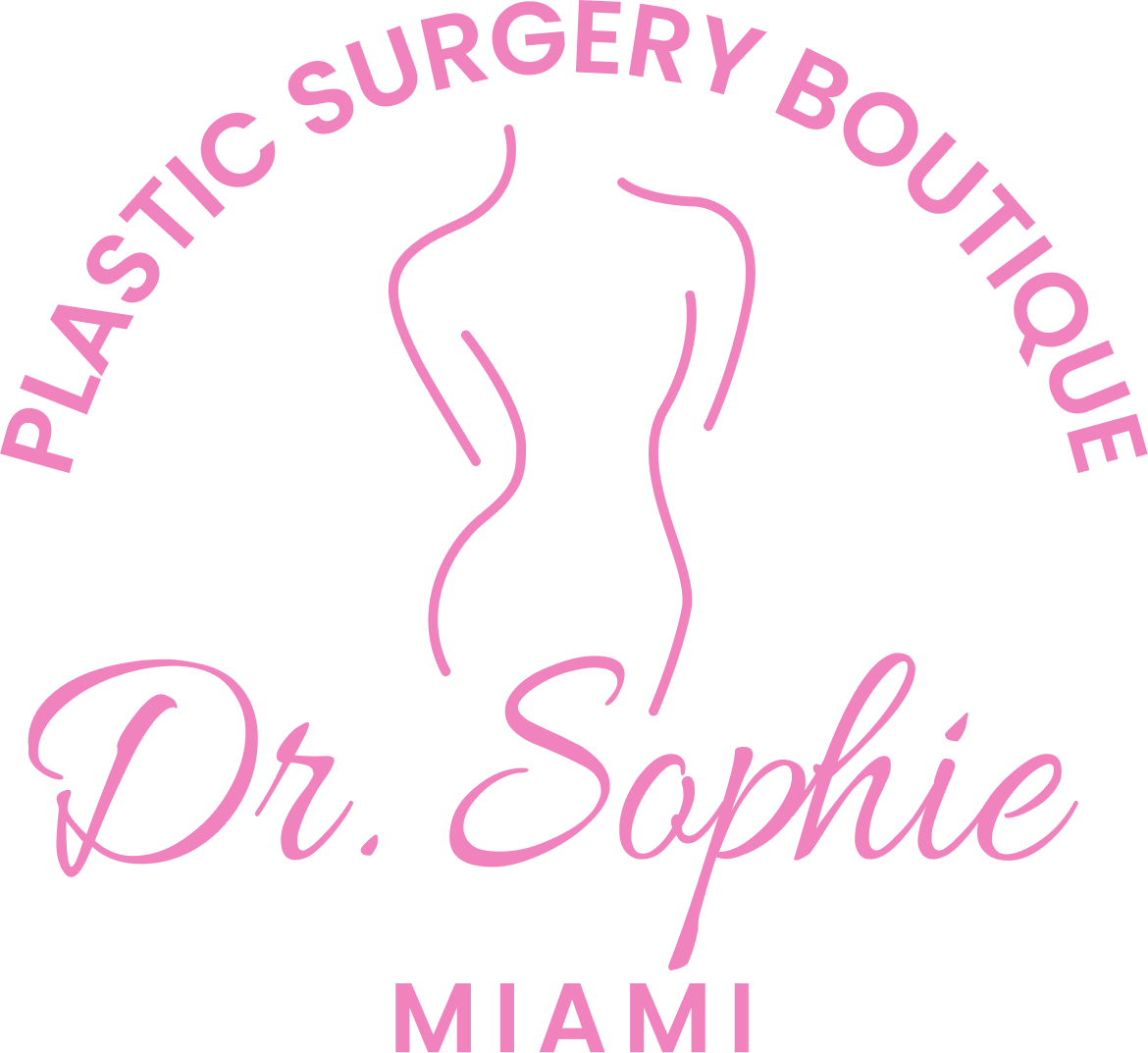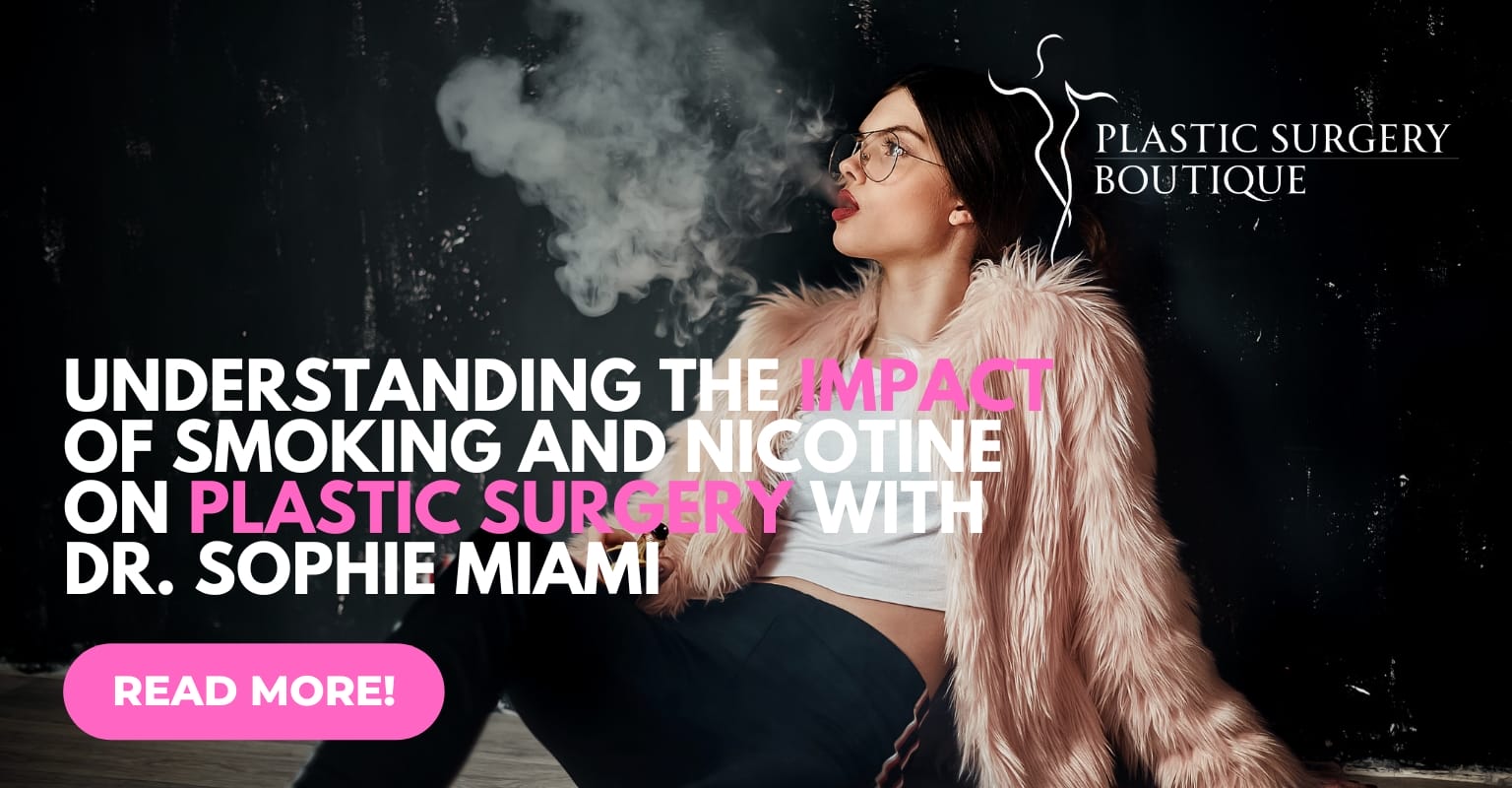Key Takeaways
| Key Points | Details |
|---|---|
| Risks of Smoking and Nicotine | Explains how smoking and nicotine use can complicate plastic surgery outcomes due to reduced blood flow and increased risk of tissue necrosis. |
| E-Cigarettes and Vaping Risks | Highlights the hidden risks of e-cigarettes and vaping, including nicotine content and toxic metal exposure. |
| Marijuana Use and Surgery | Discusses the increased risks associated with marijuana use, especially when smoked, in relation to surgery complications. |
| Quitting for Surgery Success | Emphasizes the importance of quitting smoking and nicotine use before and after surgery to reduce complications and enhance outcomes. |
| Plastic Surgery Boutique’s Policies | Outlines the strict pre- and post-surgery policies at Plastic Surgery Boutique regarding smoking and substance use, including mandatory abstinence and nicotine testing. |
| Support for Quitting | Details the support and resources provided by Dr. Sophie Miami and her team to help patients quit smoking and substance use for their surgery. |
The Impact of Smoking and Nicotine on Plastic Surgery: A Detailed Overview
Understanding the Risks with Dr. Sophie Miami at Plastic Surgery Boutique
When considering plastic surgery, it’s crucial to understand the profound impact that smoking, vaping, and nicotine use can have on both the procedure and recovery. At Plastic Surgery Boutique in Miami, Dr. Sophie Miami emphasizes the importance of this knowledge to all her patients.
Why Smoking and Nicotine Matter in Plastic Surgery
- General vs. Cosmetic Surgery: Unlike general surgeries where blood flow to the skin is minimally affected, cosmetic surgeries like face lifts, breast lifts, and tummy tucks involve significant manipulation of skin and fat. This process disrupts blood vessels, making the nourishment of these tissues reliant on a reduced blood supply.
- Effects of Nicotine: Nicotine, present in cigarettes and vaping products, causes blood vessels to constrict. This reduced blood flow can lead to complications in surgeries where skin and fat are repositioned. The risk of tissue necrosis, where skin and fat cells die, is notably higher in smokers and nicotine users.
Complications Linked to Nicotine Use
- Infection Risks: Smokers face a higher risk of post-surgical infections due to impaired blood flow and reduced oxygen supply to tissues.
- Fat Necrosis: The death of fat cells can lead to hard lumps, adversely affecting the aesthetic outcome of surgeries like fat transfer breast augmentations.
- Scarring Issues: Nicotine use can result in thickened, darker scars, impacting the overall appearance post-surgery.
- Serious Health Risks: Increased chances of blood clots, heart attacks, strokes, and pneumonia are significant concerns for smokers undergoing surgery.
The Path to a Safer Procedure
- Pre-Surgery Abstinence: Abstaining from nicotine products for four to six weeks before surgery can significantly lower the risk of wound healing complications. Dr. Sophie Miami advises patients to avoid not only cigarettes but also nicotine gums and patches.
- Post-Surgery Care: Continuing to avoid nicotine post-surgery is crucial for proper healing. The tissues remain vulnerable during this period, and nicotine can impede the recovery process.
E-Cigarettes and Vaping: Unveiling the Hidden Risks in Plastic Surgery
Expert Insights from Dr. Sophie Miami at Plastic Surgery Boutique
In the evolving landscape of smoking alternatives, e-cigarettes and vaping have emerged as popular choices. However, Dr. Sophie Miami at Plastic Surgery Boutique in Miami urges patients to understand the hidden risks these alternatives pose, especially in the context of plastic surgery.
The Misconception of Safety with E-Cigarettes
- Nicotine Content: Despite being marketed as safer alternatives to traditional cigarettes, most vaping liquids contain nicotine, which constricts blood vessels, just like traditional cigarettes. This constriction can be detrimental to the healing process in plastic surgeries, where adequate blood flow is crucial.
- Toxic Metal Exposure: Recent studies have revealed alarming levels of toxic metals, including lead, chromium, nickel, and manganese, in e-cigarette vapors. These metals, when inhaled, can introduce additional risks to the body, complicating both the surgery and the recovery process.
Marijuana Use and Its Surgical Implications
With changing laws and perceptions around marijuana use, Dr. Sophie Miami advises patients at Plastic Surgery Boutique to be cautious. Smoking marijuana, whether for medical or recreational purposes, can significantly increase the risk of complications during and after surgery. These risks include:
- Increased Cardiovascular Risks: Smoking marijuana has been linked to a higher likelihood of strokes, heart attacks, and pneumonia.
- Wound Healing Concerns: Similar to tobacco, marijuana smoking can impair wound healing, posing a risk to the success of cosmetic procedures.
Oral Forms of Marijuana and Surgery
While orally ingested marijuana might pose fewer risks than smoking, the lack of regulation in its composition can still be a concern. Unregulated substances in these products might impair wound healing or interact with other medications used during and after surgery.
Navigating Pre-Surgery and Post-Surgery Guidelines
At Plastic Surgery Boutique, we have established comprehensive guidelines for our patients regarding the use of e-cigarettes, vaping products, and marijuana. To ensure the best possible surgical outcomes, patients are advised to abstain from these substances for six weeks prior to surgery and three weeks post-surgery. This policy is a crucial part of our commitment to patient safety and successful surgical results.
The Importance of Quitting Smoking for Plastic Surgery Success
Guidance and Support from Dr. Sophie Miami at Plastic Surgery Boutique
Quitting smoking and nicotine use is a critical step for anyone considering plastic surgery. Dr. Sophie Miami at Plastic Surgery Boutique in Miami emphasizes this as a key factor in ensuring the success and safety of your procedure.
Quitting Before Surgery: A Necessary Step
- Reducing Complications: Completely abstaining from cigarettes, vaping, and other nicotine products for four to six weeks before surgery can significantly lower the risks associated with wound healing. This pre-surgery abstinence is vital for ensuring that the blood flow to the surgical area is not compromised.
- Enhancing Surgical Outcomes: By quitting smoking, patients not only reduce the risk of complications but also improve the overall outcomes of their plastic surgery. Better blood flow means better healing and more satisfactory results.
Continued Abstinence Post-Surgery
- Supporting Healing: The period immediately following surgery is crucial for healing. Continuing to avoid nicotine after your procedure is essential for proper recovery. The tissues are still vulnerable, and nicotine can impede the healing process.
- Long-Term Health Benefits: While the focus is often on the immediate surgical outcomes, quitting smoking has long-term health benefits. Dr. Sophie Miami encourages patients to view this as an opportunity for a healthier lifestyle beyond the recovery period.
Personalized Support for Smoking Cessation
At Plastic Surgery Boutique, we understand that quitting smoking is a challenging journey. Dr. Sophie Miami and her team provide support and resources to help patients through this process. Whether it’s through counseling, support groups, or other methods, our goal is to assist you in making this significant health change.
Plastic Surgery Boutique’s Strict Policies on Smoking and Substance Use
Ensuring Optimal Outcomes with Dr. Sophie Miami’s Guidelines
At Plastic Surgery Boutique in Miami, Dr. Sophie Miami has instituted stringent policies regarding the use of tobacco, nicotine products, e-cigarettes, and marijuana. These guidelines are integral to our commitment to patient safety and the success of your plastic surgery.
Our Comprehensive Pre- and Post-Surgery Policy
- Mandatory Abstinence: Patients are required to completely quit the use of all tobacco, nicotine, e-cigarettes, and marijuana for six weeks prior to surgery and for three weeks following the procedure. This policy is crucial in minimizing risks and enhancing the healing process.
- Nicotine Testing: Compliance with this policy is confirmed through nicotine testing at the time of surgery. This ensures that patients have adhered to the pre-surgery guidelines, significantly reducing the risk of complications.
- Exceptions and Individual Assessments: While our policy is strict, exceptions may be made at Dr. Sophie Miami’s discretion for procedures that do not involve extensive skin rearrangement, such as breast augmentation. Each patient’s situation is individually assessed to determine the best course of action.
The Role of Patient Commitment in Surgical Success
- Patient Responsibility: Adhering to these pre- and post-surgery guidelines is a responsibility that falls on the patient. Your commitment to following these rules plays a direct role in the success of your surgery and the quality of your results.
- Support and Resources: Understanding the challenges of quitting smoking and substance use, Dr. Sophie Miami and her team at Plastic Surgery Boutique offer support and resources to help patients through this process. We are dedicated to assisting you in making these important health changes.
Contact Plastic Surgery Boutique for a Consultation
If you’re considering plastic surgery and have concerns about quitting smoking or other aspects of your procedure, we encourage you to contact Plastic Surgery Boutique. Schedule a consultation with Dr. Sophie Miami by calling 305-562-5859. We are here to discuss any questions you may have and to guide you through preparing for your surgery with your health and safety as our top priority.

